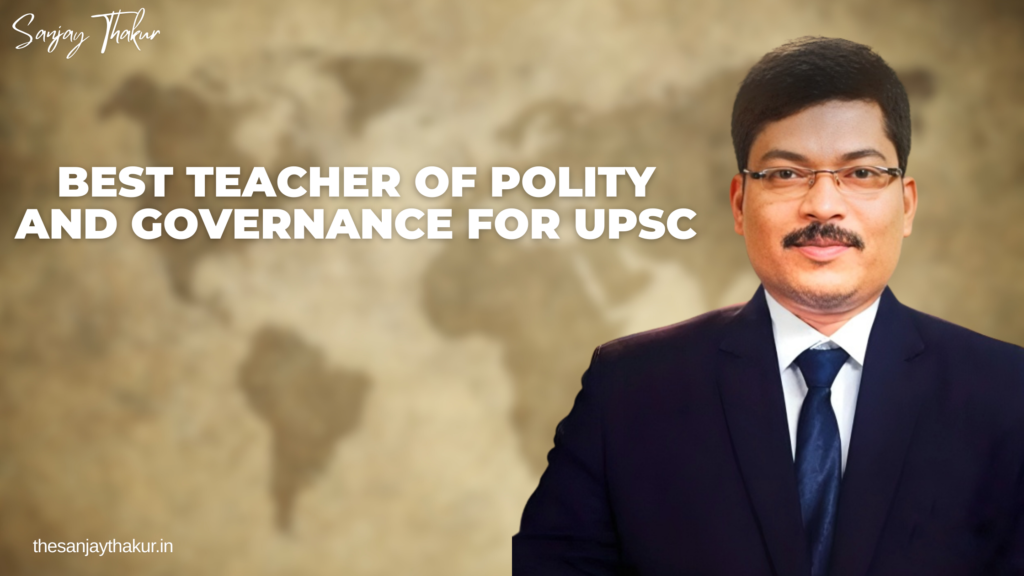इस लेख को हिन्दी से पढ़ने के लिए Top- Right Corner में language button में क्लिक करके हिन्दी का चयन करें।

Welcome, Future UPSC Toppers!
Political Science & International Relations (PSIR) is one of the most popular optional subjects in the UPSC Civil Services Examination. With its high-scoring potential, strong overlap with General Studies (GS), and relevance in international and domestic governance, it remains a favorite among aspirants.
However, despite its advantages, many students fail to score 300+ marks due to some avoidable mistakes. These errors often hinder conceptual clarity, answer-writing skills, and structured preparation, ultimately reducing their chances of clearing UPSC.
🚀 If you want to maximize your PSIR score and stand out in Mains, this article will guide you through the 10 most common mistakes UPSC aspirants make in PSIR Optional—and more importantly, how to fix them!
So, let’s begin this journey towards mastering PSIR! 📖✨
🚨 MISTAKE #1: Treating PSIR Like Just Another Optional Subject
❌ What’s Wrong?
Many students pick PSIR because they believe it is scoring, straightforward, and has good GS overlap. But they fail to understand that PSIR is not just about memorizing theories and concepts—it is a dynamic subject that requires analytical thinking, conceptual clarity, and interlinking ideas with real-world scenarios.
✅ How to Avoid It?
- Develop a strong conceptual foundation by understanding thinkers, political theories, governance models, and IR dynamics.
- Treat PSIR as an evolving subject—connect static theories with current affairs, case studies, and real-world political events.
- Engage in discussions—Join study groups or online platforms to debate and analyze key concepts.
💡 Example: When studying Karl Marx’s ideology, don’t just memorize communism—relate it to modern economic issues like income inequality, social justice policies, and labor laws.
🚨 MISTAKE #2: Ignoring Answer Writing Practice
❌ What’s Wrong?
PSIR demands a structured and analytical approach to answer writing. Many aspirants spend months reading but don’t practice writing until the last moment, which affects their performance in Mains.
✅ How to Avoid It?
- Start answer writing from Day 1—even if it’s just one question per day.
- Follow a structured format:
- Introduction – Define the concept or introduce the thinker.
- Main Body – Use relevant theories, thinkers, examples, and diagrams.
- Conclusion – End with a futuristic or critical perspective.
- Join a test series and seek feedback from mentors to improve your writing style.
💡 Example: When answering a question on India’s role in UN reforms, discuss both historical contributions and contemporary challenges, and conclude with India’s aspirations for a permanent UNSC seat.
🚨 MISTAKE #3: Relying Only on One Source for PSIR Preparation
❌ What’s Wrong?
Some students believe one book or one set of notes is enough, but PSIR requires a multi-dimensional understanding from diverse sources.
✅ How to Avoid It?
- Follow a mix of standard books, coaching notes, and online resources.
- Some Sources:
- Western Political Thinkers: Andrew Heywood, OP Gauba
- Indian Political Thought: Rajeev Bhargava, IGNOU notes
- International Relations: Global Politics by Andrew Heywood, The Hindu & Indian Express editorials
- Supplement with newspapers, journals, and government reports.
💡 Example: To understand Realism in International Relations, don’t just read definitions—also analyze USA’s foreign policies, India-China border tensions, and Russia-Ukraine conflicts using Realist principles.
🚨 MISTAKE #4: Memorizing Theories Without Practical Application
❌ What’s Wrong?
Many aspirants blindly memorize political theories and thinkers without understanding their real-world application.
✅ How to Avoid It?
- Use contemporary political events to explain theories (Plato’s Philosopher King and the leadership crisis, Machiavelli’s realism and modern-day diplomacy).
- Compare thinkers and their ideologies to show a balanced perspective.
- Always apply IR theories to India’s foreign policy.
💡 Example: Instead of just writing that Nehru followed Non-Alignment, explain how his policies evolved based on India’s economic needs and Cold War tensions.
🚨 MISTAKE #5: Not Using Current Affairs in Paper 2 (International Relations)
❌ What’s Wrong?
Paper 2 is highly dynamic, and writing static answers can cost you marks.
✅ How to Avoid It?
- Relate India’s foreign policy to recent global events (G20, QUAD, Indo-Pacific strategies).
- Read MEA Reports, The Hindu, Indian Express, and ORF to understand India’s international positioning.
- Use case studies and real-world examples in every answer.
💡 Example: While discussing India-Russia relations, link it to defense agreements (S-400 missiles), energy partnerships, and the changing global order.
🚨 MISTAKE #6: Ignoring Previous Year Questions (PYQs)
❌ What’s Wrong?
UPSC repeats concepts with a new framing—not solving PYQs means missing out on these patterns.
✅ How to Avoid It?
- Analyze 10 years of PYQs to identify recurring themes.
- Solve at least 5 PYQs per week.
- Maintain a question bank of frequently asked topics.
💡 Example: If UPSC asks about Marxism’s relevance in today’s world, prepare notes linking Marxist ideas to economic inequality, labor movements, and globalization.
🚨 MISTAKE #7: Not Revising at Regular Intervals
❌ What’s Wrong?
Many aspirants focus on finishing the syllabus but fail to revise it, which affects retention during the exam.
✅ How to Avoid It?
- Revise every topic at least 3 times before the exam.
- Use summary notes, flashcards, and mind maps.
- Maintain a revision cycle—1st week, 1st month, 3rd month, and before exams.
💡 Example: Instead of revisiting full books, create one-page summaries for every topic for quick revision.
🚨 MISTAKE #8: Weak Time Management in the Exam Hall
❌ What’s Wrong?
Many students spend too much time on one question, leaving other answers incomplete.
✅ How to Avoid It?
- Allocate time per question (7-9 minutes for 10 markers, 11-14 minutes for 15 markers).
- Always attempt all questions to maximize marks.
- Practice mock tests under exam conditions.
🚨 MISTAKE #9: Not Using Diagrams, Maps, and Flowcharts
✅ How to Fix It?
- Use maps in IR answers (India-China border disputes, India’s maritime strategy).
- Use flowcharts for theories and thinkers.
- Make answers visually appealing for easy understanding.
🚨 MISTAKE #10: Losing Motivation and Consistency
✅ How to Fix It?
- Set weekly and monthly targets.
- Join study groups for motivation.
- Keep reminding yourself why you started.
🎯 Learn, Improve, and Succeed!
📌 UPSC rewards depth, clarity, and analytical thinking.
📌 Practice answer writing, stay updated, and revise consistently.
📌 Follow a structured strategy, and you will master PSIR Optional!
💬 Which mistake have you made before? Comment below!
💡 Share this with your UPSC friends—let’s help everyone avoid these mistakes! 🚀


